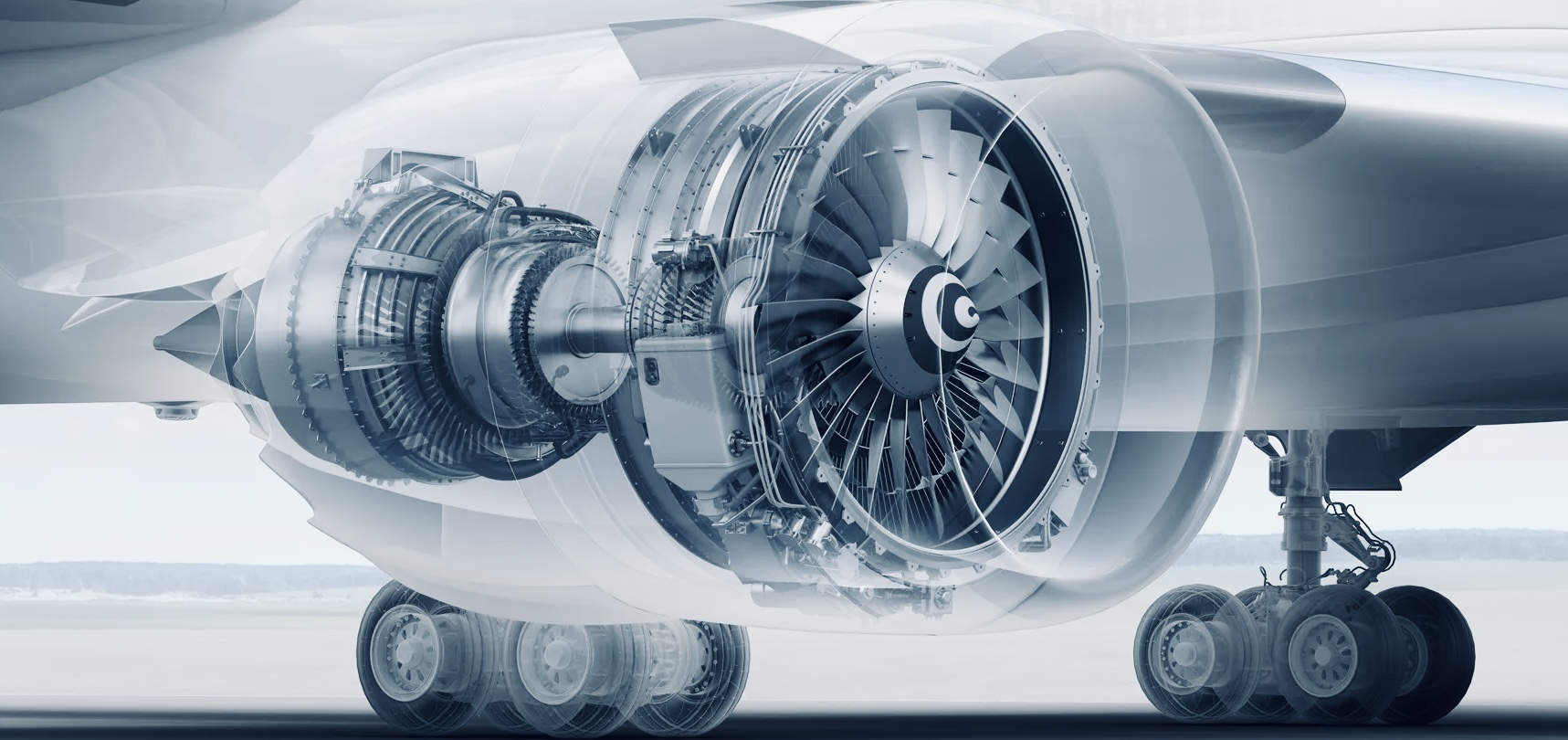What Happens If an Engine Fails? A Pilot Explains Why You’re Still Safe
Apr 02, 2025What Happens If an Engine Fails? A Pilot Explains Why You’re Still Safe
Worried about engine failure during a flight? You're not alone.
As an Airline Pilot and Fear of Flying Coach, I hear this question all the time:
“What happens if an engine fails mid-flight?”
Let’s get straight to the point: commercial aircraft are specifically designed, tested and certified to continue flying safely if an engine fails. This applies at all stages of flight – from take-off through to landing.
That doesn’t mean the aircraft is meant to fly on one engine routinely – it means it’s built to handle it safely and predictably should it ever happen. And pilots are trained extensively to manage that scenario.
Let’s break it down so you never need to worry about engine failure again.
Most people don’t realise just how enormous a modern jet engine truly is. This image really puts it into perspective. Imagine a small bird entering this space – the engine is built to be incredibly robust and resilient.

What Does an Engine Failure Mean for the Plane?
Whether the aircraft has two, three or four engines, it does not need all of them to stay airborne.
-
📋 Three or Four Engines: Losing one still leaves multiple engines operating normally.
- 📋 Engine Aircraft: These are specifically designed and certified to fly safely on one engine – including during take-off, climb, cruise, landing, and even a go-around.
Even in the rare event of an engine failure, the aircraft remains safe and fully controllable.
How Often Do Engine Failures Actually Happen?
Very rarely. I’ve been flying for nearly 25 years, and I’ve never had an engine failure. Most airline pilots will go their entire career without experiencing one.
Modern jet engines are incredibly reliable and go through rigorous checks after every flight. They are also built with redundancy and resilience in mind. When issues do occur, they’re usually minor and not even noticeable to passengers.
In fact, many engine “failures” are simply reductions in thrust – and unless the captain makes an announcement, most people on board would never know.
What Do Pilots Do If an Engine Fails?
From day one in flight school to regular simulator training, pilots are prepared to handle engine failures calmly and professionally. Here’s what happens:
1. Fly the Aircraft
- The aircraft remains fully controllable on one engine.
- At lower altitudes, it can maintain level flight or even climb.
- At higher altitudes, we may descend to where the remaining engine works more efficiently – all while flying safely.
2. Navigate, Assess and Plan
- We identify the nearest suitable airport for a diversion.
- Sometimes we’ll return to the departure airport or continue to the original destination if it remains safe – but we don’t fly further on one engine than necessary.
3. Communicate and Land
- We notify Air Traffic Control and coordinate a safe approach and landing.
- The aircraft remains stable and controllable throughout the entire process.
Engine failure is classified as an emergency, but because we train for it regularly, it’s handled with calm, well-practised procedures – not panic.
What If Both Engines Fail?
This is a question I get asked often – and the answer might surprise you.
Even if both engines fail, the aircraft will not fall out of the sky.
Commercial airliners are designed with glide capability. Just like gliders or wingsuit flyers, they continue flying forward and descending gradually – not dropping vertically as people often imagine.
- The chance of a single engine failure is extremely low. The chance of both engines failing at the same time is so unlikely, it’s considered a near-impossibility.
- From cruising altitude, most airliners can glide for over 100 miles.
- In the event of a dual engine failure, pilots have time. One pilot focuses on restarting the engines while the other plans a diversion and heads towards the nearest safe airport.
- Jet engines are designed to restart mid-air, and there are well-established procedures in place.
It’s important to understand that engines don’t just randomly stop in mid-cruise. The very few known dual engine failures have all involved external causes – such as bird strikes (like the Miracle on the Hudson) or fuel mismanagement. These aren’t examples of engines simply “failing” – they’re the result of rare and specific events.
We train for them not because they’re likely, but because being prepared for every eventuality is part of aviation safety. This information is here to educate you – not to alarm you.
Knowing what’s possible and how rare these events are is often the best way to keep flight anxiety at bay.
Reassurance for Nervous Flyers
I understand that the phrase “engine failure” can sound frightening – but here’s the reality:
- Commercial jets are built to fly on one engine
- Engine failures are extremely rare
- Pilots train for this constantly
- Even in the rarest of situations – total engine failure – the aircraft will glide safely
In over two decades of airline flying, I’ve never experienced an engine failure. The same goes for the vast majority of my colleagues. But we all continue to train for it, so if it ever happens, we’re more than ready.

Want to Feel More Confident in the Air?
If you’ve ever found yourself worrying about what could go wrong during a flight, you’re not alone – and you don’t have to face it on your own.
Join the FlyPhobia Newsletter and get expert support every week! Each edition covers a new topic just like this one, giving you insider insights from an experienced airline captain. From myth-busting facts to practical techniques, you’ll learn how to stay calm and confident no matter what.
Plus, when you sign up, you’ll receive two free eBooks:
✈️ Jet Lag Recovery Tips
❄️ Winter Weather Flying Handbook for Nervous Flyers
Take the first step to worry-free flying – sign up below!
Fly Happy, Fly Safe –
Captain Flyman Simon

Join Thousands of People Conquering a Fear-Of-Flying Now!
Get started today 🛫👇



